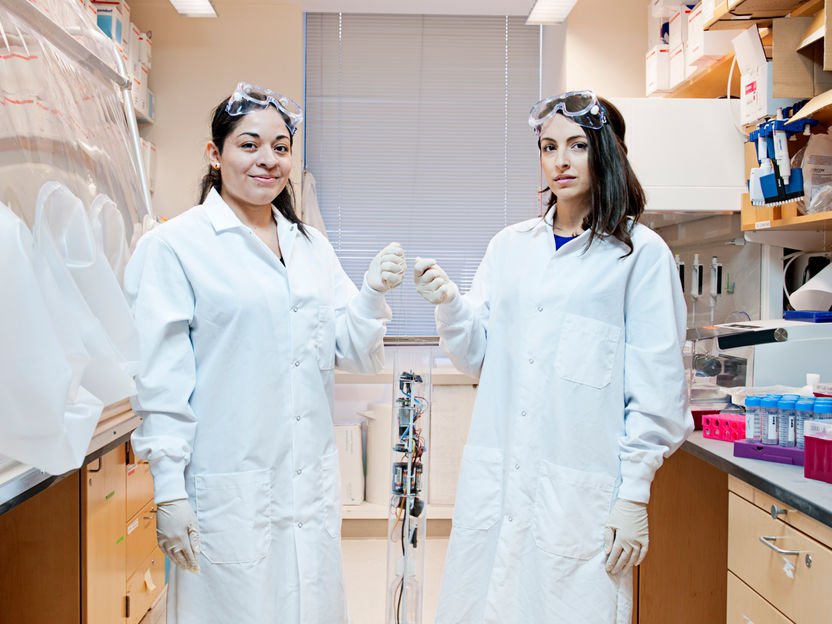Covid-19 research in wastewater
Biobot Analytics Raises $6.7 Million in Seed Funding to Transform Wastewater Infrastructure into Public Health Observatories
Biobot Analytics, a technology company that deploys wastewater monitoring equipment and analytical tools to provide novel public health insights at the community level, announced it has raised $4.2 million bringing its total amount of seed funding to $6.7 million. In response to the crisis, Biobot has begun deploying its platform to track the spread of Covid-19 and map its prevalence in cities across the U.S.

Biobot Analytics' founders: Mariana Matus (L) and Newsha Ghaeli (R).
Webb Chappell for the Boston Globe
The funding round was led by The Engine, the venture firm spun out of MIT, that invests in early-stage Tough Tech companies that are solving the world’s most urgent problems through the convergence of breakthrough science, engineering, and leadership. AmFam Institute Impact Fund joined the round as a strategic investor. Previous investors Y Combinator and DCVC also participated in this round. This capital will be used to support rapid growth of operations to address pandemic challenges and fund additional market expansion and product development.
Biobot was developed at MIT, where the two founders, Mariana Matus, PhD and Newsha Ghaeli, combined their computational biology, wastewater epidemiology and urban planning backgrounds to develop the technology, which can provide sub-city-level human health data. Using anonymous data collected from sewage, Biobot’s platform can trace health indicators that provide insights into drug use, the presence of viruses, environmental contaminants and nutrition.
“Doctors use waste samples regularly to understand, diagnose and care for our individual wellbeing. We are deploying our technology to do the same at the population level, which is tremendously valuable to government and private sector partners and will be core to public health improvement and the development of smart cities,” said Mariana Matus, PhD, co-founder and CEO of Biobot Analytics.
Biobot conducted its first commercial implementation of the technology with an opioid analytics program in Cary, NC. The company’s analysis gave local officials accurate information on the use of opioids, so they could better lead productive interventions, reducing overdoses by 40% and lowering their associated cost to the healthcare system. Today, seven cities in Massachusetts are conducting initial studies with the Biobot opioid product.
“We are thrilled to support Biobot in accelerating growth of their company. The team has shown the potential of using our wastewater systems for mitigating the opioid crisis and now is the time to extend the approach to addressing other important health challenges, from COVID-19 and other viruses to environmental contaminants,” said Ann DeWitt, general partner, of The Engine.
In March, in collaboration with researchers at MIT, Harvard and Brigham & Women’s Hospital, Biobot launched a campaign to solicit wastewater from facilities across the U.S. Its research protocol and findings from an initial review of samples from a large urban facility in MA were detailed in the academic paper which can be found on MedRxiv called “SARS-COV-2 titers in wastewater are higher than expected from clinically confirmed cases.” Findings indicate that COVID-19 prevalence is orders of magnitude higher than confirmed cases suggest.
Original publication
Other news from the department business & finance
Most read news
More news from our other portals
Something is happening in the life science industry ...
This is what true pioneering spirit looks like: Plenty of innovative start-ups are bringing fresh ideas, lifeblood and entrepreneurial spirit to change tomorrow's world for the better. Immerse yourself in the world of these young companies and take the opportunity to get in touch with the founders.





















































